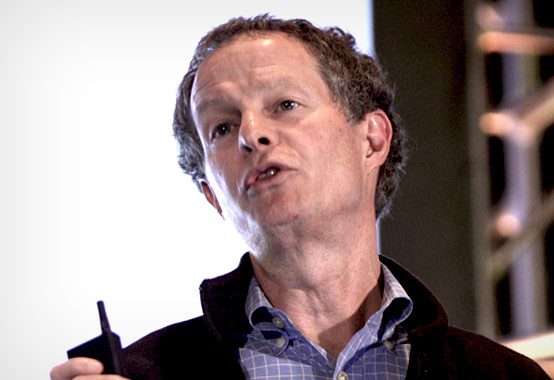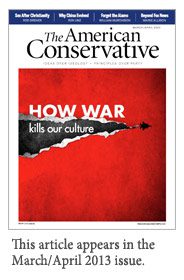Whole Foods’ Better Business

Ever since the robber barons stalked the earth and Balzac expostulated that “behind every great fortune is a crime,” the media has attacked Wall Street, Madison Avenue, and anything to do with corporations. In the latest Gallup poll on the trustworthiness of various professions, business executives come out little better than lawyers and used-car salesmen, far below the ethical standings of medical doctors, engineers, and police officers.
Even as the global marketplace has raised the standard of living a hundredfold in the past century, the accusations keep pouring in—that capitalism promotes inequality, materialism, greed, environmental degradation, and short-termism on Wall Street, and that fraud, deception, and corporate welfarism would run rampant if it weren’t for Sarbanes-Oxley, Dodd-Frank, and a host of government regulatory agencies.
But corporate management has come a long way since the dark days of Carnegie, Morgan, Gould, and Rockefeller. The first glimmer of hope came when Henry Ford instituted the $5-a-day wage in 1913 and recognized that workers deserved to participate in the company’s fortunes. Ford’s decision to more than double their daily pay allowed employees for the first time to buy the cars they were making and helped toward dispelling the Marxist charge of exploitation and alienation.
Still, battle lines have been drawn between labor and capital, and between consumers and producers, into the 21st century. Workers live in constant fear of being underpaid, overworked, or unemployed thanks to the upper hand of management, while consumers are deceived by “hidden persuaders” into buying “bads” rather than “goods.” All this despite the Herculean efforts by such management gurus as Frederick Taylor, Alfred Sloan, Edward Deming, Louis Kelso, Peter Drucker, Steve Covey, and Jim Collins. Big government and non-profit organizations seem a necessary countervailing power to a deeply flawed private enterprise system.
In response, utopian visionaries have sought to transform capitalism into a system that is “humane,” “social,” “enlightened,” “good,” and even “better.” But after countless how-to books and MBA courses on business ethics, leadership, and corporate culture, the question remains: can the business world develop a system beneficial to all the stakeholders in a firm—owners, consumers, workers, investors, suppliers, and the community at large?
Enter John Mackey, cofounder and co-CEO of Whole Foods Market. He and his co-author, Raj Sisodia, a professor at Bentley University, have created solutions they call “conscious capitalism” and “firms of endearment.” The authors offer a balanced score card, with chapters on “loyal, trusting customers”; “passionate, inspired team members”; “patient, purposeful investors”; “collaborative, innovative suppliers”; “flourishing, welcoming communities”; and “a healthy, vibrant environment.” Mackey and Sisodia conclude that business is not a sporting event, “a zero-sum game with a winner and a loser. It’s a win, win, win, win game.”
Yet skepticism abounds. Capitalism may be cooperative, but it can also be ruthlessly competitive. How can one avoid being labeled a “selfish and greedy businessman,” exploiting customers with high prices and misleading advertising and employees with low wages and high turnover?
Having read dozens of business books over the years, I can say with considerable authority that Conscious Capitalism is the most ambitious management model ever conceived, and if implemented it could catapult the world of business to what Adam Smith described eloquently as the “highest degree of opulence.” Indeed, if Mackey’s application of higher consciousness had been in the boardroom a generation ago, I like to think that we could have avoided the suffocating regulations of Sarbanes-Oxley and Dodd-Frank and the dire straits of companies like GM, Sears, and Citibank (even Enron).
Mackey wants firms to stop focusing exclusively on the bottom line—he would replace the traditional “shareholder” philosophy with a “stakeholder” philosophy. “Business is not about making as much money as possible,” he asserts. “It’s about creating value for stakeholders.” Companies must develop sterling reputations to attract loyal customers, employees, and suppliers and to generate community goodwill. If they do, superior returns can be achieved in earnings and the stock price, but as a byproduct, not as a primary goal.
Conscious capitalism is not just high theory: the book contains numerous case studies, starting with the $16 billion grocery-store chain that Mackey has been directing since the early 1980s. In the grocery business, traditionally known for its low margins, Whole Foods has achieved high margins and does so with little advertising: customers are the stores’ best advocates. Despite volatility, its stock has handily outperformed every index, has a return on equity of 13.7 percent, and is near an all-time high.
Whole Foods has been listed on the Fortune 100 Best Companies to Work For rankings since 1998. Employees—“team members”—receive above-average wages and benefits, including medical savings accounts and “wellness centers.” There are lots of built-in incentives to improve performance and earn more.
Whole Foods has created some of the most innovative labor policies anywhere, including a.) a cap on total compensation, including bonuses, for any employee at 19 times the average pay of all workers; b.) total transparency in salaries and wages; and c.) the same benefits, including stock options, for all full-time employees. This radical approach seems to be working: the company has a turnover rate of less than 10 percent a year.
Throughout the book, Mackey and Sisodia highlight other companies with a similar philosophy and equal success, such as Starbucks, The Container Store, the Tata Group, Costco, Google, Southwest Airlines, Panera Bread, Twitter, Trader Joe’s, and Waste Management.
Mackey and Sisodia don’t pull any punches. They are critical of Wall Street’s short-term quantitative metrics. They express reservations about Jim Collins’s list of “good to great” companies, such as Circuit City, Fannie Mae, and Altria (formerly Philip Morris), all of which Mackey says have embraced “unconscious” policies. Under his definition of good capitalism, some companies might have to change their product line or their corporate culture, or simply disappear. Mackey is critical of big pharma for its unethical and aggressive promotion of drugs with dangerous side effects. And he rejects out of hand GE’s policy under Jack Welch of firing the bottom 10 percent of its workforce each year.
Although he calls free enterprise and entrepreneurship the source of “unprecedented prosperity for humanity,” Mackey challenges the philosophical vanguards of capitalism, Ayn Rand and Milton Friedman. He rejects the Randian notion that “selfishness” and “greed” are virtues and denies Friedman’s view that the only responsibility of capitalist firms is to maximize profits to their shareholders.
If there’s one undeveloped section in the book, it’s how to deal with failure. How do owners, workers, and suppliers respond to the creative-destructive nature of global capitalism—downturns in the economy, failed product selection, heavily unionized industries, foreign competition, and sectors in secular decline? Most companies go through tough times where they must downsize, turn around, or go bankrupt, leaving workers unemployed and bills unpaid. How would conscious capitalism apply to their situation?
The authors only briefly address this. Are they suggesting that if business leaders follow the tenets of conscious capitalism they will never fail, that they can always adjust to the new demands of fickle customers, obsolete technology, and government regulations, that firms will seldom if ever have to lay off workers in mass or close stores? The authors seem uncomfortable with the idea of firing anyone. How would they advise a company going bankrupt like Hostess, which faced entrenched union demands? Most importantly, how do companies avoid the danger of stakeholder imbalance, giving too much control to executives, team members, or the wider community?
In an appendix, Mackey and Sisodia compare their model with other philosophies of capitalism, such as Bill Gates’s “creative” capitalism. They distance themselves from the “corporate social responsibility” plan adopted by many companies—they claim it is often more PR than an integrated model—and warn against “charismatic” leadership. Unfortunately, they don’t discuss Charles Koch’s market-based management (MBM), which has catapulted Koch Industries into being the second largest private company in the world, or John Allison’s Objectivist model that transformed BB&T into the fastest growing regional bank in the country. It would be fun to have Koch, Allison, and Mackey compare notes in a public forum, especially with regard to whether a successful company should be public or private. (Koch Industries is private.)
 Mackey’s conscious capitalism faces an uphill battle to satisfy everyone, including union bosses—Whole Foods workers remain non-union—environmentalists, and animal-rights activists (despite Whole Foods’ advanced policies). His ideal manager can’t completely avoid such troubles as store closings, layoffs, and other inevitable effects of a dynamic global economy. But he’s gone further than anyone to build a better world: as Benjamin Franklin once wrote, “it is incredible the quantity of good that may be done in a country by a single man who will make a business out of it.”
Mackey’s conscious capitalism faces an uphill battle to satisfy everyone, including union bosses—Whole Foods workers remain non-union—environmentalists, and animal-rights activists (despite Whole Foods’ advanced policies). His ideal manager can’t completely avoid such troubles as store closings, layoffs, and other inevitable effects of a dynamic global economy. But he’s gone further than anyone to build a better world: as Benjamin Franklin once wrote, “it is incredible the quantity of good that may be done in a country by a single man who will make a business out of it.”
In sum, Mackey appears to have discovered how business can achieve the goal that Peter Drucker described as the “ideal non-revolutionary social welfare institution.” For Mackey, it’s not the state, church, alma mater, or nonprofit organization but the place most people spend most of their waking hours working and developing their closest relationships—the private company. Mackey cites a Gallup world poll indicating that the number one determinant of happiness is “a good job.” He steadfastly believes that business, the voluntary shared passion of individuals, “can create a world in which all people live lives full of purpose, love, and creativity—a world of compassion, freedom, and prosperity.”
That’s a rather an ingenious discovery for a kid who never took a business class in college.
Mark Skousen is the editor of Forecasts & Strategies and the producer of Freedom Fest.
Comments